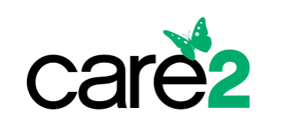According to a recent study conducted on behalf of Independent Sector, only 31% of charities in the United States have engaged in advocacy in the last five years.
This marks a significant decline in nonprofit advocacy compared to two decades ago, despite the fact that American nonprofit organizations are legally permitted to speak up on issues that affect the people they serve.
While disturbing, this also represents a massive opportunity for nonprofits to embrace their right to advocate for progressive causes like protecting the environment, animal rights, child welfare, disease research and more. It’s critical that organizations fighting for social change use every tool and pathway available to advance their work.
Why is this a problem?
The study also found that only 25% of nonprofits reported ever formally lobbying the government, a stark decrease from the 74% that did so in 2000. The main reason behind this decline seems to be a lack of understanding among nonprofit leaders about the rules governing advocacy and lobbying activities.
The findings are significant because nonprofits, as 501(c)3 organizations, have the legal right to attempt to influence local, state, and national government decisions. Advocacy can be crucial for advancing their missions, as it allows them to suggest ideas for new laws, rules, or funding that would benefit the communities they serve.
What counts as “advocacy”?
The rules for nonprofit advocacy are more flexible than commonly believed, and nonprofits can raise awareness about issues and directly engage with public officials as long as it doesn't dominate their daily activities or use government funds. The study highlights the need for more training of nonprofit leaders on the importance of advocacy tied to their missions.
The researchers are planning additional studies and interviews to understand why nonprofits are engaging less in advocacy and to identify potential solutions. The data will be made publicly available for further research by other scholars in the field.
Want to learn more about your nonprofit organization’s right to advocate?
Check out these Care2 resources:
- A Beginner’s Guide: How to run your first advocacy campaign
- 5 Big Tips: How to engage your advocacy campaign’s supporters
- The White House is blocking email campaigns: Here’s how you can still be heard
How do Care2 petitions help boost your message and win progressive victories?
We craft customized campaigns to channel the energies of our highly engaged audience toward your organization. Whether you want to drive traffic to your own landing page, increase the awareness of your organization around a particular issue, gather thousands of new donor prospects, or win your next campaign ... We can help. Request a quick call now.



COMMENTS